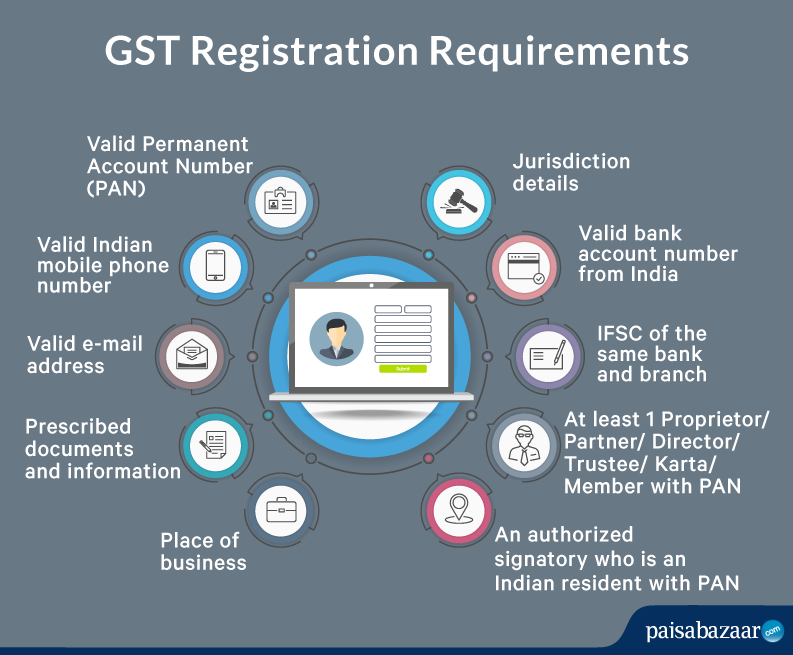Important Overview to Singapore GST Registration for New Businesses
Important Overview to Singapore GST Registration for New Businesses
Blog Article
The Ultimate Overview to Simplifying the GST Enrollment Process and Requirements for Small Organization Owners

Recognizing GST Fundamentals
To understand the fundamentals of the Goods and Solutions Tax Obligation (GST) system, local business owners have to initially comprehend its underlying principles and ramifications. GST is a value-added tax levied on most goods and solutions for residential usage. It aims to streamline the taxes procedure by changing several indirect taxes enforced by the state and central federal governments. Under the GST regime, businesses are needed to accumulate and sign up tax in support of the federal government, guaranteeing transparency and compliance.
Among the essential concepts of GST is input tax debt, which enables organizations to claim credit history for taxes paid on their acquisitions. This mechanism stops the plunging impact of taxes and promotes performance in the tax system. Furthermore, GST is a destination-based tax obligation, implying that the tax obligation is imposed at the point of usage instead than the point of origin. This makes certain fair distribution of tax obligation earnings among states based upon where the services or products are eaten. Understanding these fundamental concepts is essential for little organization owners to navigate the complexities of the GST system and ensure conformity with the law.
Eligibility Requirements for Registration
Having developed a fundamental understanding of GST concepts, small company owners must now meet specific eligibility standards to continue with the enrollment procedure. In India, entities took part in the supply of products or services with an annual aggregate turn over going beyond Rs. 40 lakhs (Rs. 10 lakhs for special category states) are required to sign up for GST. In addition, specific organizations such as those associated with inter-state supply of products, informal taxable individuals, and those required to pay tax obligation under the reverse fee system must sign up for GST irrespective of their turnover. In addition, businesses that were signed up under the previous tax obligation program (VAT, solution tax obligation, etc) are additionally mandated to sign up under GST. Nonetheless, farming organizations that just supply generate out of main manufacturing are excluded from GST registration. It is important for entrepreneur to carefully analyze their eligibility based upon these criteria to ensure conformity with the regulation and stay clear of any fines for non-compliance.
Documents Required for GST Enrollment

Simplified Registration Process Actions
Complying with the collection and confirmation of the requisite documents, the registration procedure for GST can be browsed through a series of simplified steps created to help with effective conformity for tiny business owners. Upon successful verification, an Application Referral Number (ARN) is provided, showing the conclusion of the GST registration process. By following these simplified steps, tiny business owners can efficiently register for GST and guarantee compliance with tax policies.
Tips for Ensuring Compliance
To Related Site maintain regulative adherence and operational stability, attentive oversight and positive actions are essential in ensuring conformity with GST needs for see post small business proprietors. Small organization proprietors need to stay updated with GST regulations, filing deadlines, and any kind of changes in tax obligation prices to stay clear of penalties and keep a great standing with tax authorities. Going to GST awareness workshops or training programs can boost understanding and conformity with GST laws, inevitably profiting the company in the long run.
Conclusion
In verdict, local business proprietors need to comprehend the basics of GST, fulfill the qualification requirements, gather essential records, and comply with the simplified registration procedure steps to guarantee compliance. By streamlining the GST enrollment process and needs, local business owners can stay clear of charges and run their organizations efficiently within the legal structure - Singapore GST Registration. It is essential for small company owners to remain educated and compliant with GST guidelines to maintain an effective business procedure
Small organization owners looking for GST registration have to ensure they collect and submit the required records to complete the enrollment process successfully. The files needed for GST registration commonly include proof of organization registration or unification, FRYING PAN (Irreversible Account Number) card of the company address, identification and entity evidence of go to these guys the promoters/partners/directors, photographs, address evidence of the area of company, financial institution account declarations or canceled cheques, and permission kinds. Participating in GST awareness workshops or training programs can improve understanding and conformity with GST regulations, eventually profiting the business in the long run.
By streamlining the GST enrollment process and demands, little organization owners can avoid charges and run their businesses smoothly within the legal framework. It is critical for small company owners to remain certified and enlightened with GST regulations to keep an effective organization operation.
Report this page